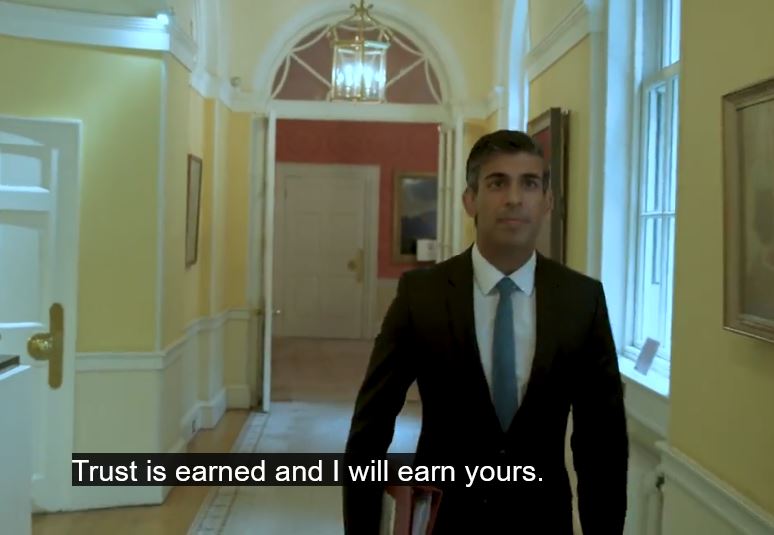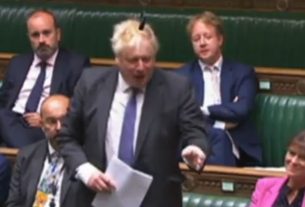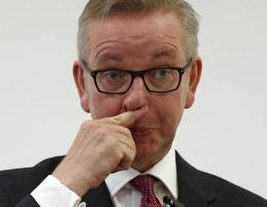Rishi Sunak’s Cop27 U-turn is not the first broken pledge of his nascent premiership, and it certainly won’t be the last.
He famously vowed to restore “integrity” to No 10 after taking over from Liz Truss but only eight days of his premiership suggests it will be yet more of the same old Tory story. He’s barely been PM for a week but that’s proved to plenty enough time for Sunak to abandon a raft of key policies and break the promises he made to the Conservative party faithful during the leadership race.
The prime minister had insisted he wasn’t going to Cop27 at Egypt’s Sharm El-Sheik resort because of “other pressing domestic commitments” – not least being the UK’s economic woes. But this morning’s U-turn – coming after Boris Johnson told Sky News he is “very happy to go” having been “invited by the Egyptians” – followed increasing criticism of Sunak’s original decision.
As well as looking indecisive and of poor judgment the U-turn has proved to the most blatant example (yet) of Sunak saying one thing and doing something else.
‘Sunak’s embarrassing misstep on the world stage’
The PM’s opponents are making hay while Tories are being left red faced once again by publicly defending policies and decisions that are reversed almost before their interviews are finished. For example, the new environment secretary Therese Coffey was probably even more flush-faced than usual after she dismissed Cop27 as not one of the “big political summits” and “just a gathering of people in Egypt,” only to see her boss U-turn and decide Cop27 is quite a big political summit after all, and one well worth attending.
“There is no long-term prosperity without action on climate change,” Sunak wrote In a tweet posted this morning (November 2). “There is no energy security without investing in renewable.”
While his supporters squirmed, Sunak’s adversaries piled in. Green party MP Caroline Lucas said she is “glad to see Sunak’s screeching U-turn” but called it “an embarrassing misstep on the world stage.” Lucas added: “Let this be a lesson to him – climate leadership matters.”
Sir Keir Starmer said of the PM’s volte-face: “Caving in to criticism is not leadership. Real leadership is seizing your seat at the table. For UK jobs. For clean energy. For our environment.
“Rishi Sunak acts in the name of political management. Labour acts in the national interest.”
Starmer’s sentiments have been echoed by his shadow secretary for climate change and net zero, Ed Milliband who said Sunak “has been shamed into going to Cop27 by the torrent of disbelief that he would fail to turn up.”
He said the U-turn is “to avoid embarrassment not to provide leadership” adding the prime minister’s “initial instinct tells us” that “he just doesn’t get it when it comes to the energy bills and climate crisis.”
PM’s backtracking, reversing and ditching promises
Sunak has already backtracked on more than half-a-dozen policy pledges he made to Tory members during the summer leadership campaign.
One of his first acts was to reverse Truss’s decision to lift the ban on fracking. Reinstating the moratorium proved popular with the majority of his MPs but not so party members. It also reneged on his leadership campaign promise to allow fracking “where local communities support it”. Not anymore.
Tax was also a central issue throughout the leadership race campaign and sensible-Sunak promised members he’d cut income tax by a penny next year and get the lowest rate down to 16% by the end of this decade. But that looks to be as much of a fairytale as Trussonomics turned out to be. Big tax rises are on the immediate horizon with the UK’s economy battered by Brexit, inflation, the war in Ukraine and cost of living crisis.
The Times reports today that “millions of middle [income] earners will be more than £3,500 poorer thanks to” a stealth raid on income tax by freezing tax thresholds “that will last at least six years”.
Sunak vowed that day one of his premiership would see the establishment of an NHS taskforce to tackle backlogs. It never happened then, and still hasn’t.
Sunak has also scrapped controversial plans to fine patients £10 for missing GP appointments – a policy cheered by Tory members at hustings but greeted with derision from NHS bosses and doctors.
Like Liz Truss found, it’s easy to make promises to party members to get their votes but much harder to implement them when taking over at Downing Street.
Another example is Sunak’s promise to house asylum seekers on boats rather than in expensive hotels. But on Monday, Downing Street said it is “not aware of any plans” for such a scheme, largely, it appears, because of multiple legal issues and concerns about putting vulnerable people on what effectively would be prison-ships.
Yet another was Sunak’s promise to Tory members to undertake a review of all retained EU law in his first 100 days. He would appoint a new Brexit minister, Sunak said, to spearhead a new “Brexit delivery unit”. According to “sources” quoted by the Financial Times, this is no longer a priority and the plans have been quietly dropped. Indeed the PM said “the time for changes in the machinery of government has passed”.
Furthermore – and remember he has been in office for little more than a week – Sunak is reported to have rowed back on another big pledge. This one would have seen the department of business split to create a new department of energy with its own cabinet minister. Like all the others, this won’t be happening any time soon.
Indeed, when the PM’s spokesperson was asked today about the promises Sunak made on the (unsuccessful) campaign trail just a few months ago, the best reply they could give was that the government is “considering all of them”.
The context has changed because Truss happened, the PM’s press secretary explained, meaning Sunak is now committed “to the promised of the [2019] manifesto” rather than anything specific within it.
‘The don’t-know-yet government’
Chris Mason, the BBC’s political editor calls it the “don’t-know-yet government” as that’s the response to “almost any enquiry” about “their plans, their views, their policies”.
Mason, rather kindly, explains it as the result of “unexpectedly” inheriting “high office in the blink of an eye and the teeth of economic calamity and they’re pausing to work out what on earth to do next.”
The result, says Mason, is we know very little in concrete, specific terms about what the government wants to do, let alone will do and everyone is waiting for the Autumn Statement to find out.
That is two weeks away and as anyone who has been paying the slightest bit of attention to British politics can verify, a week is even longer than a home secretary who breaches the ministerial code is left out of cabinet.
Sunak’s judgment is already under the spotlight for reappointing Suella Braverman. His U-turn on attending Cop27, on top of his litany of broken promises will only intensify the scrutiny even more.




